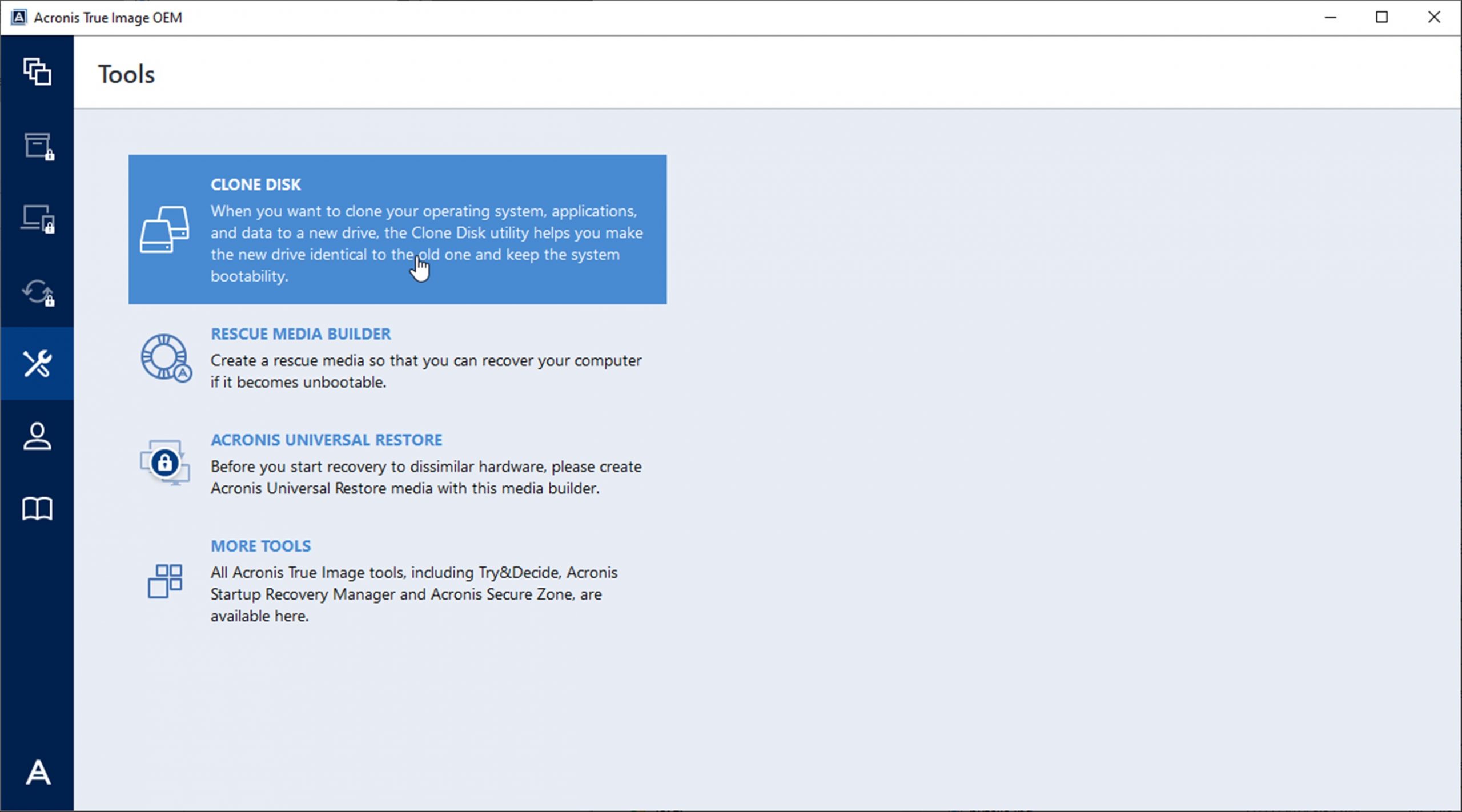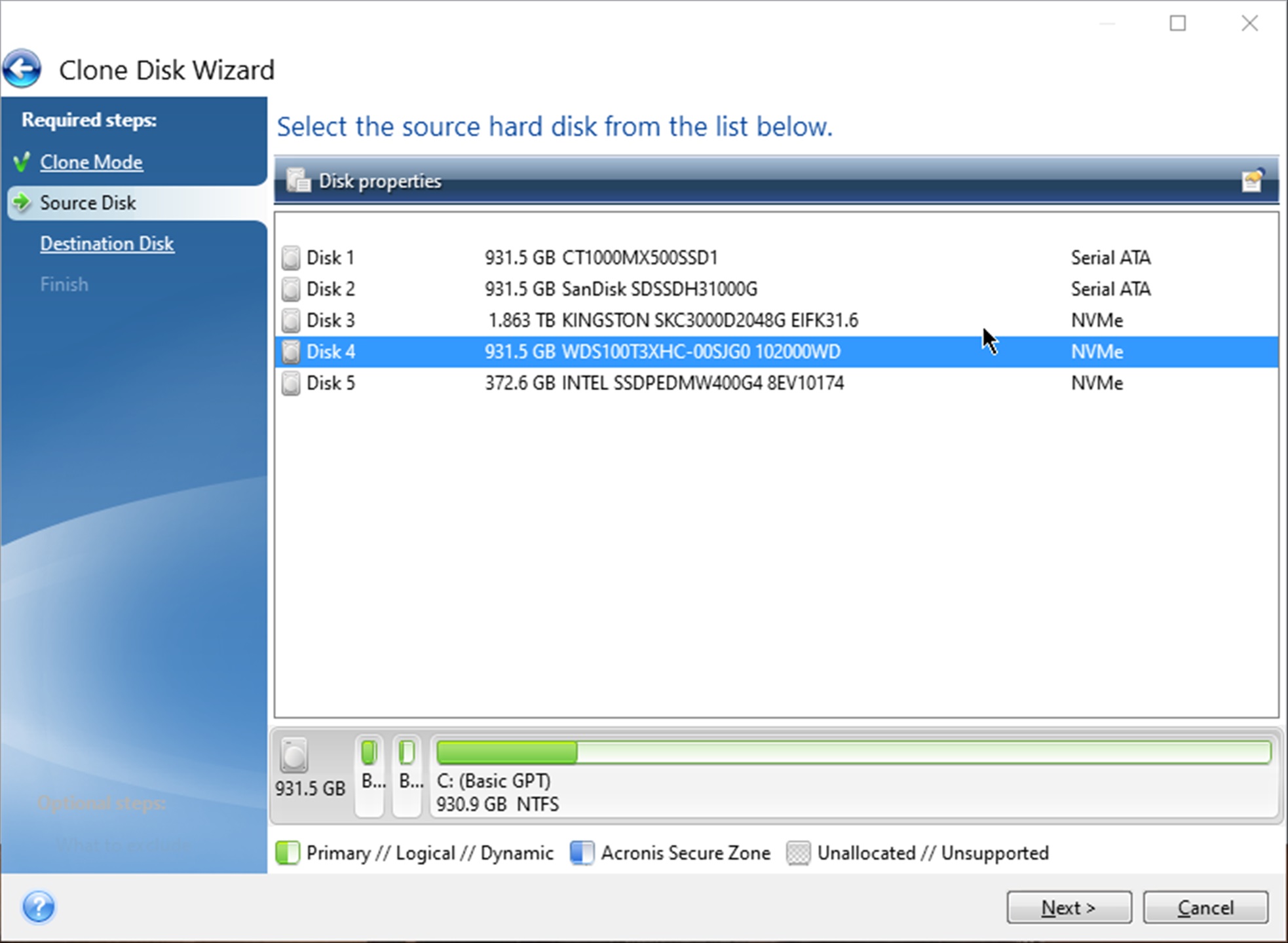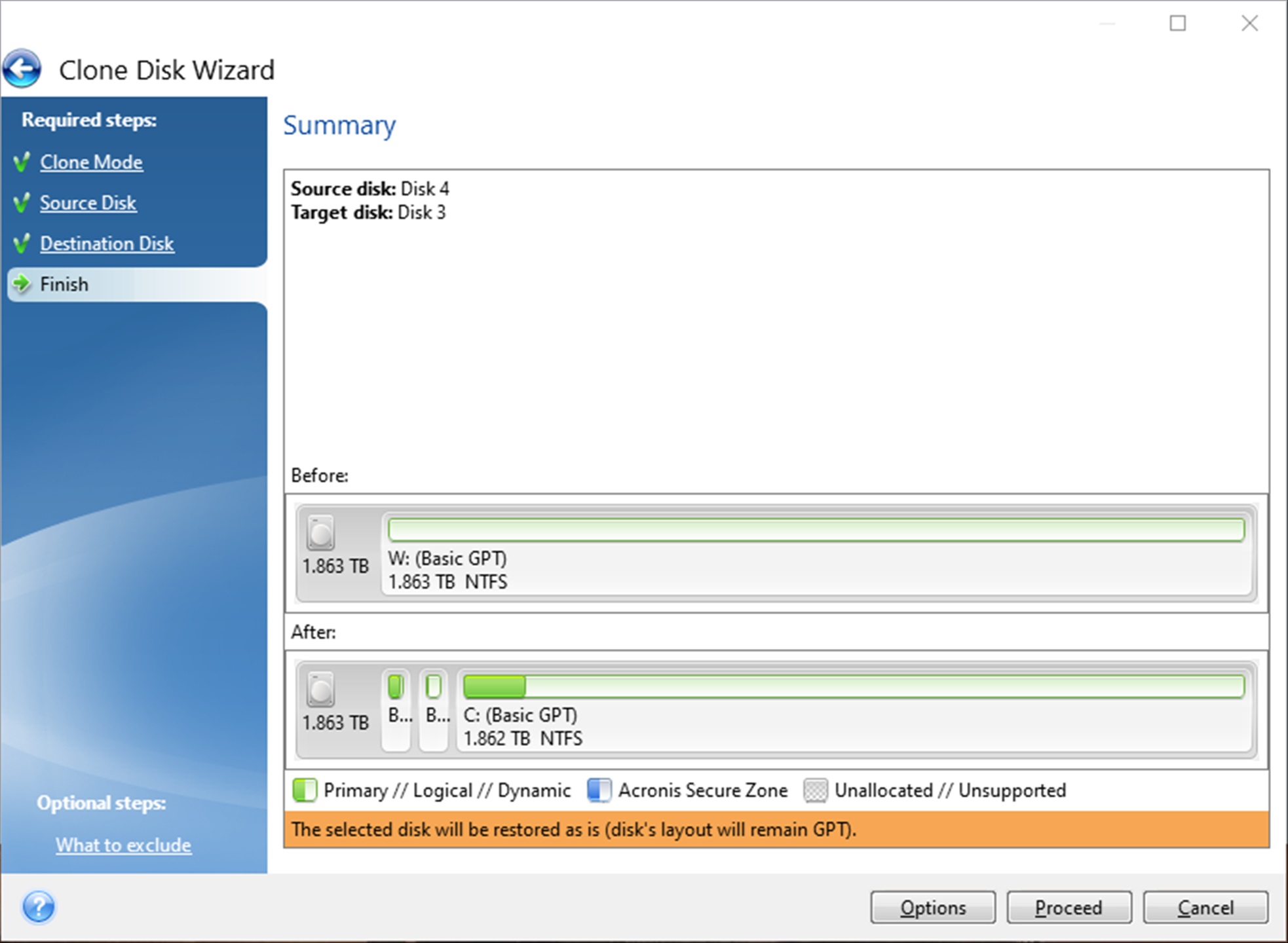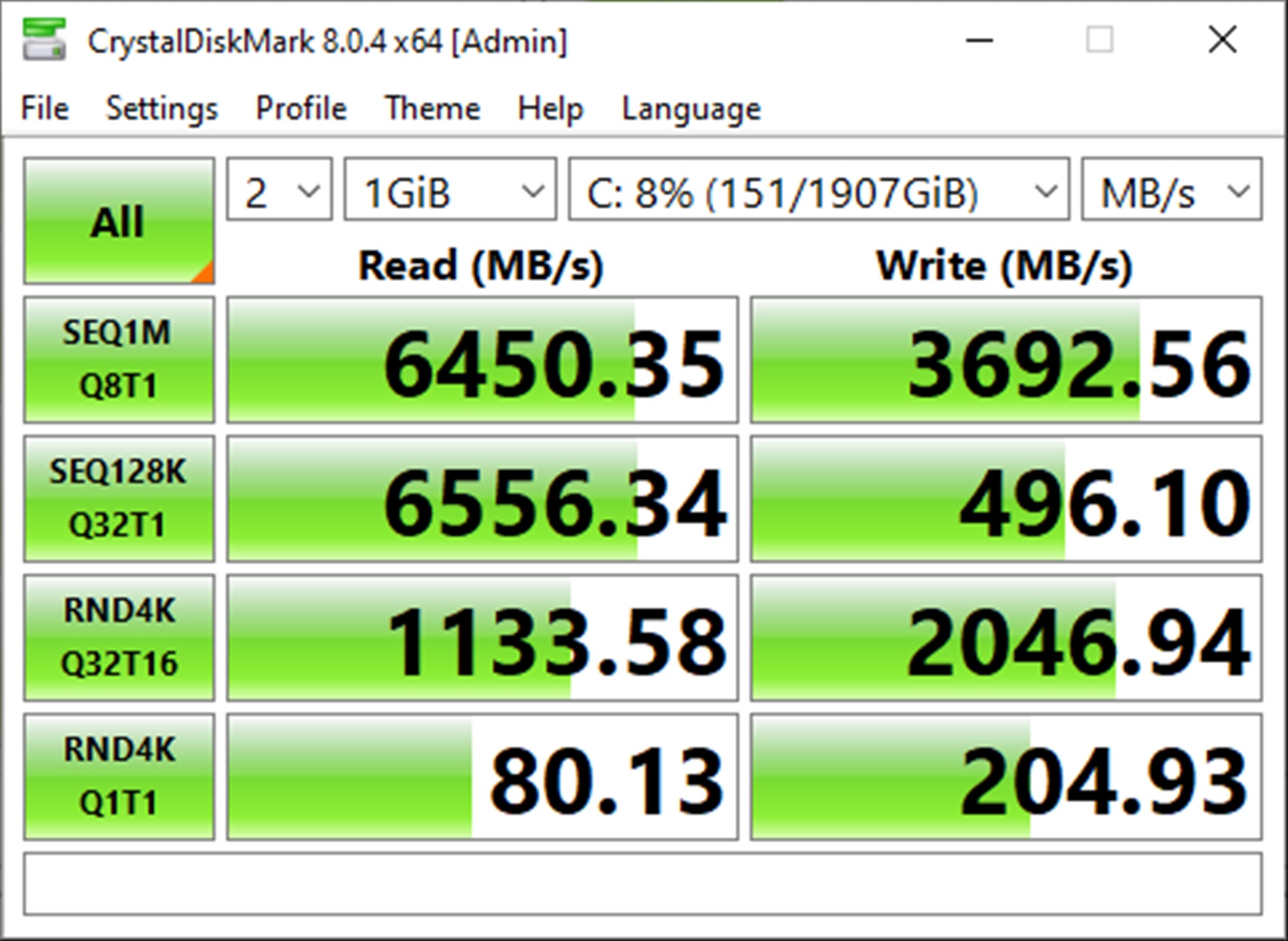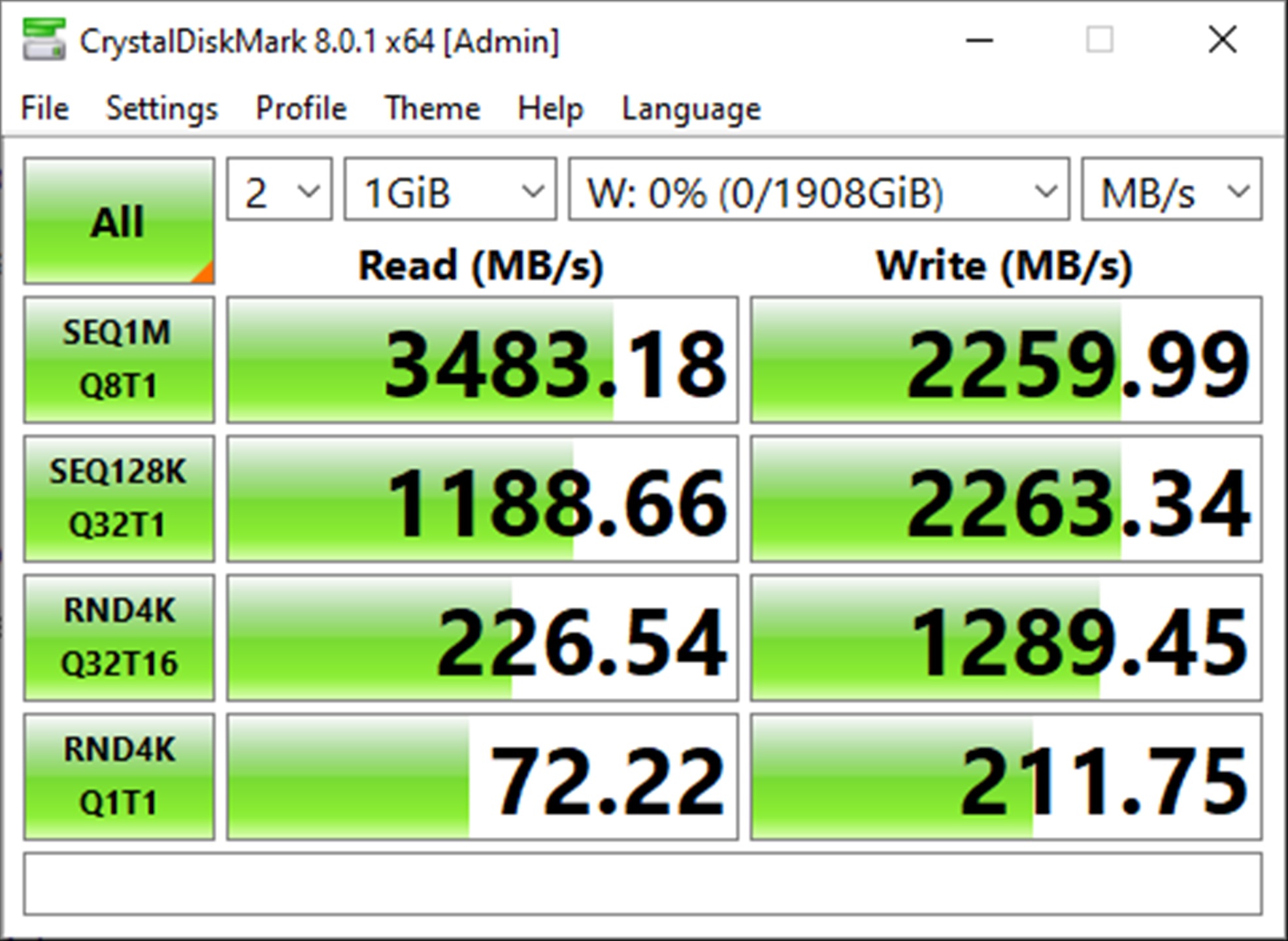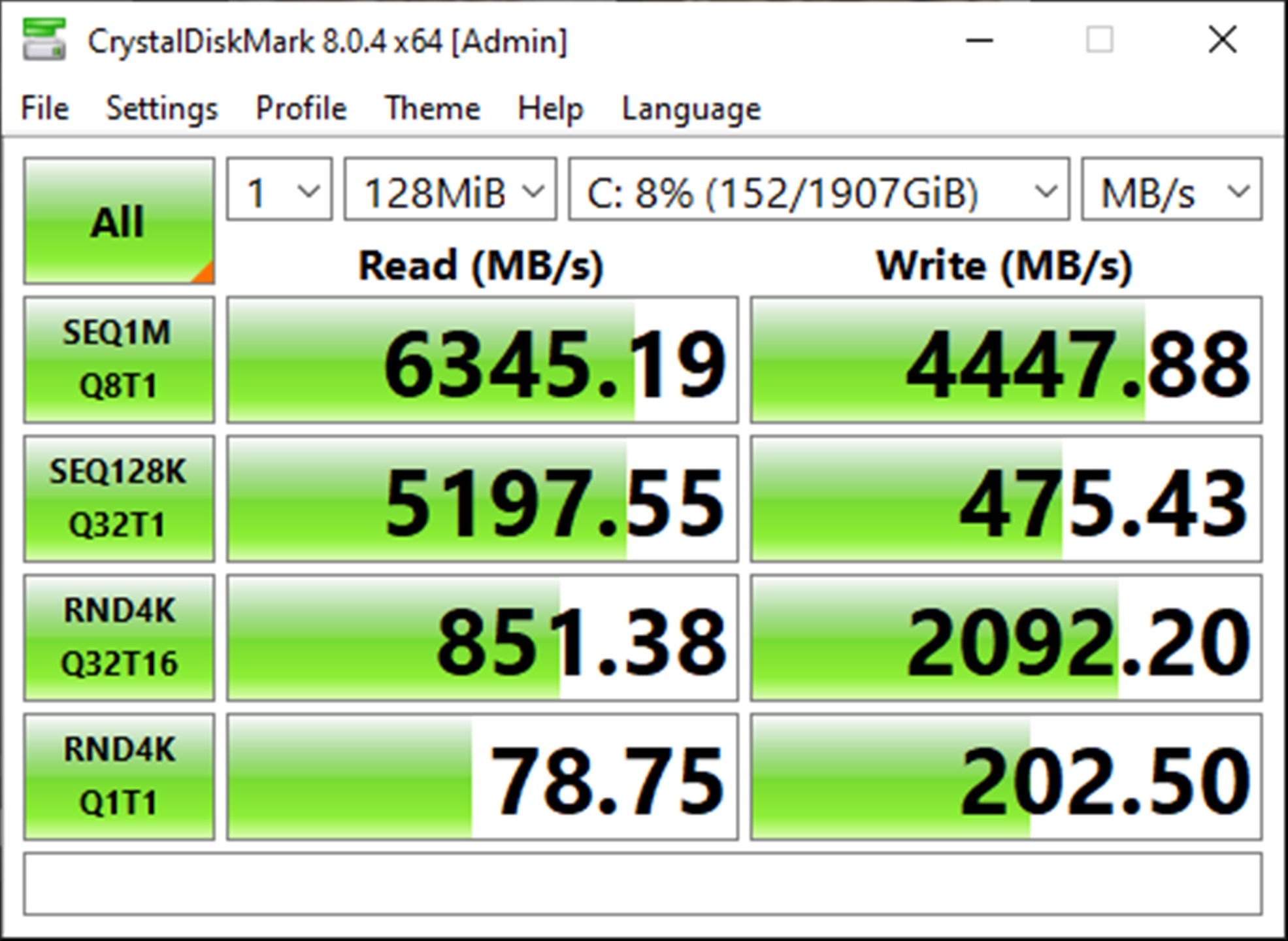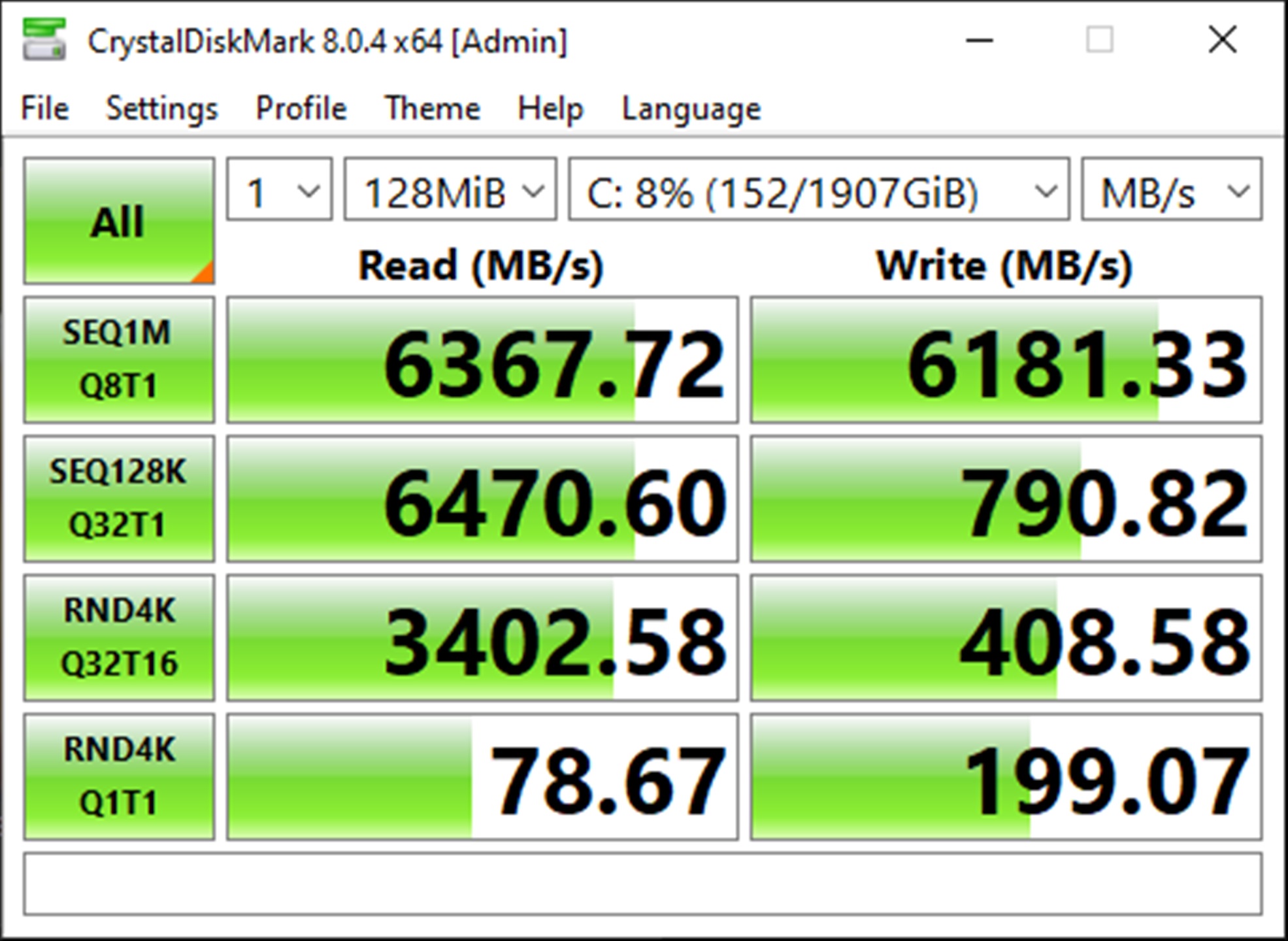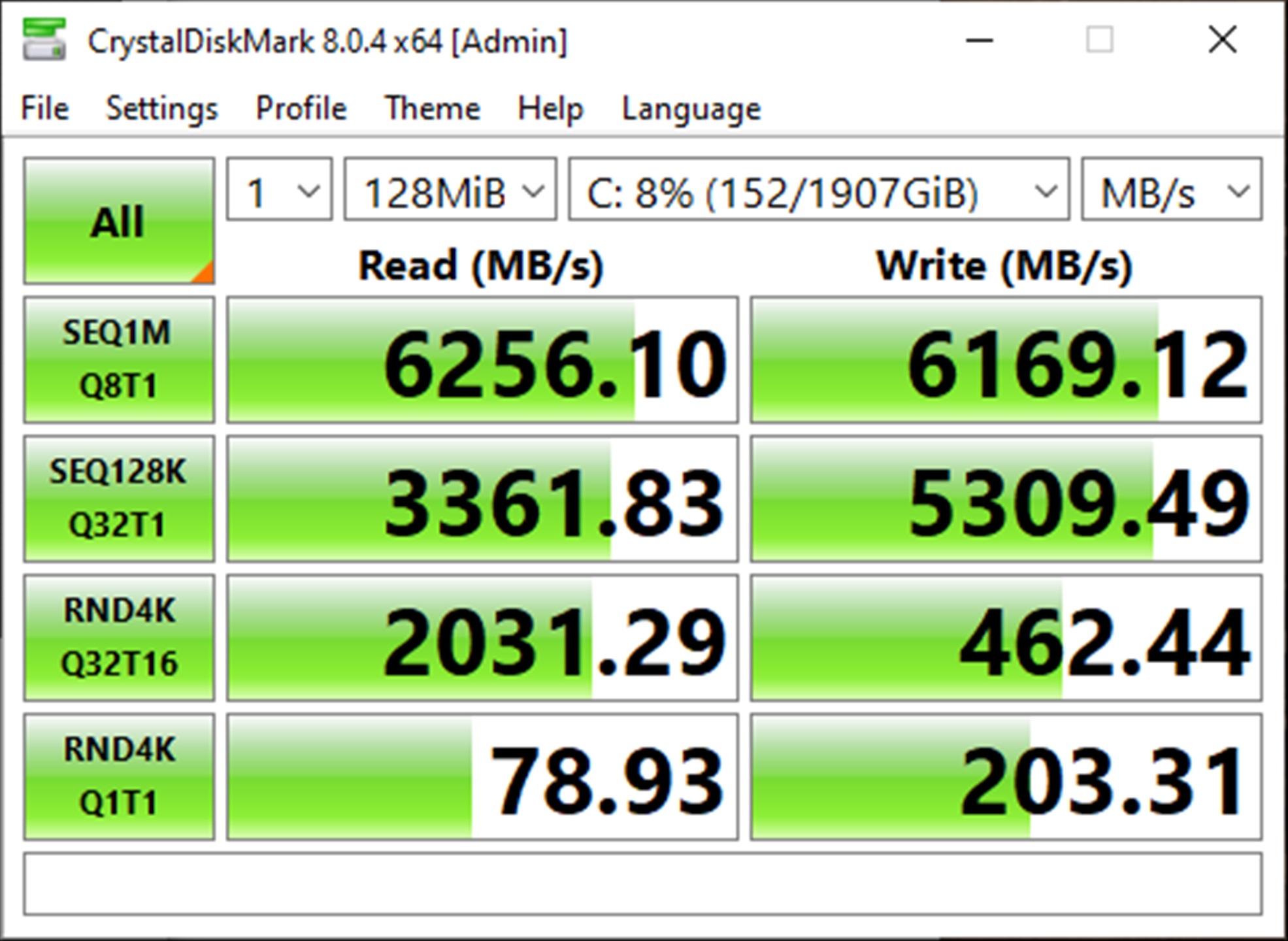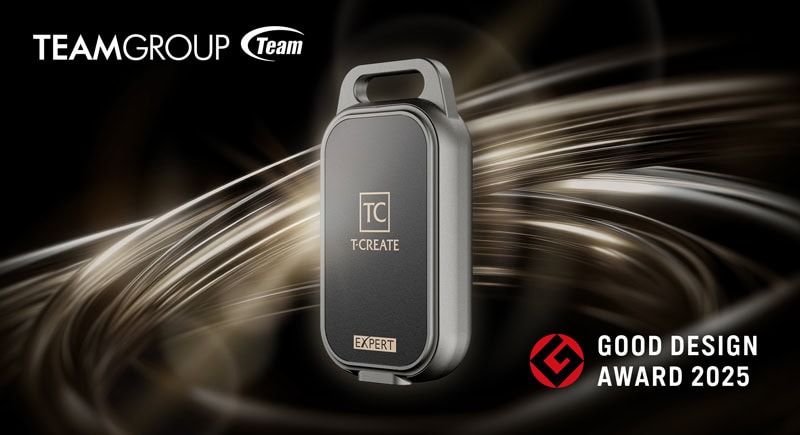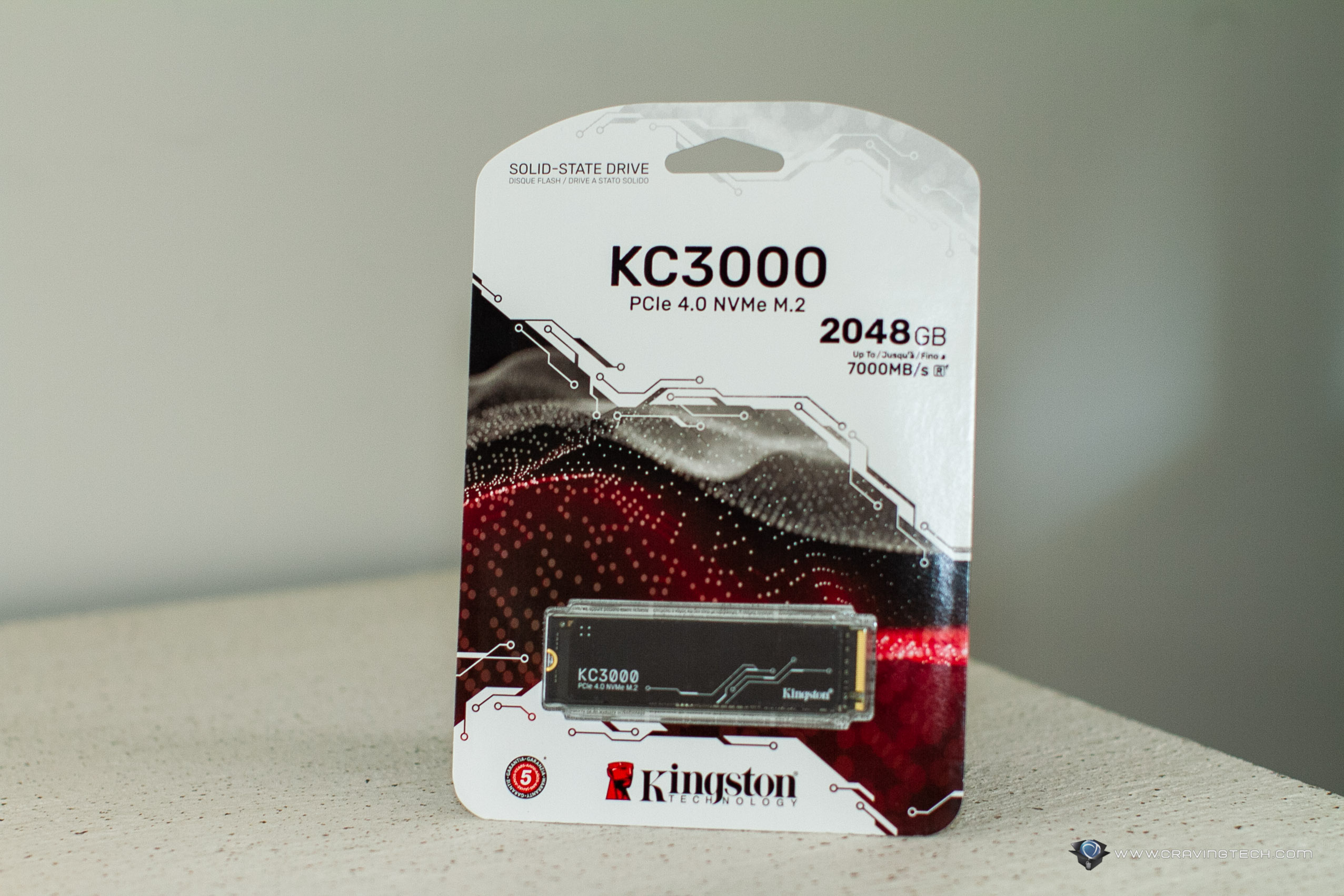
Kingston KC3000 NVMe SSD Review – After launching the KC2500 NVMe SSD (with 3,500MB/s read and 2,900 MB/s write speed), other brands have quickly released newer and faster NVMe SSDs like the WD Black SN850 (7,000MB/s read and 5,300MB/s write speed) and Seagate FireCuda 530 (7,300MB/s read and 6,900 MB/s write speed).
It’s early 2022 but NVMe SSD fans would be excited to see what Kington has to offer in the speed battle: a storage that screams 7,000MB/s read and 7,000MB/s write speed (on the 2TB and 4TB) with the newest Kingston KC3000.
Kingston KC3000 is available in four different capacities: 512GB, 1TB, 2TB, and a whopping 4TB. Thanks to the fast transfer speed and a large storage, the latest PCIe 4.0 NVMe M.2 SSD from Kingston is a force to be reckoned with.
Whether you are planning to use the drive to replace your current operating system drive, use as your primary gaming drive, or as media storage for photo and video editing, you’ll certainly be pleased with the purchase.
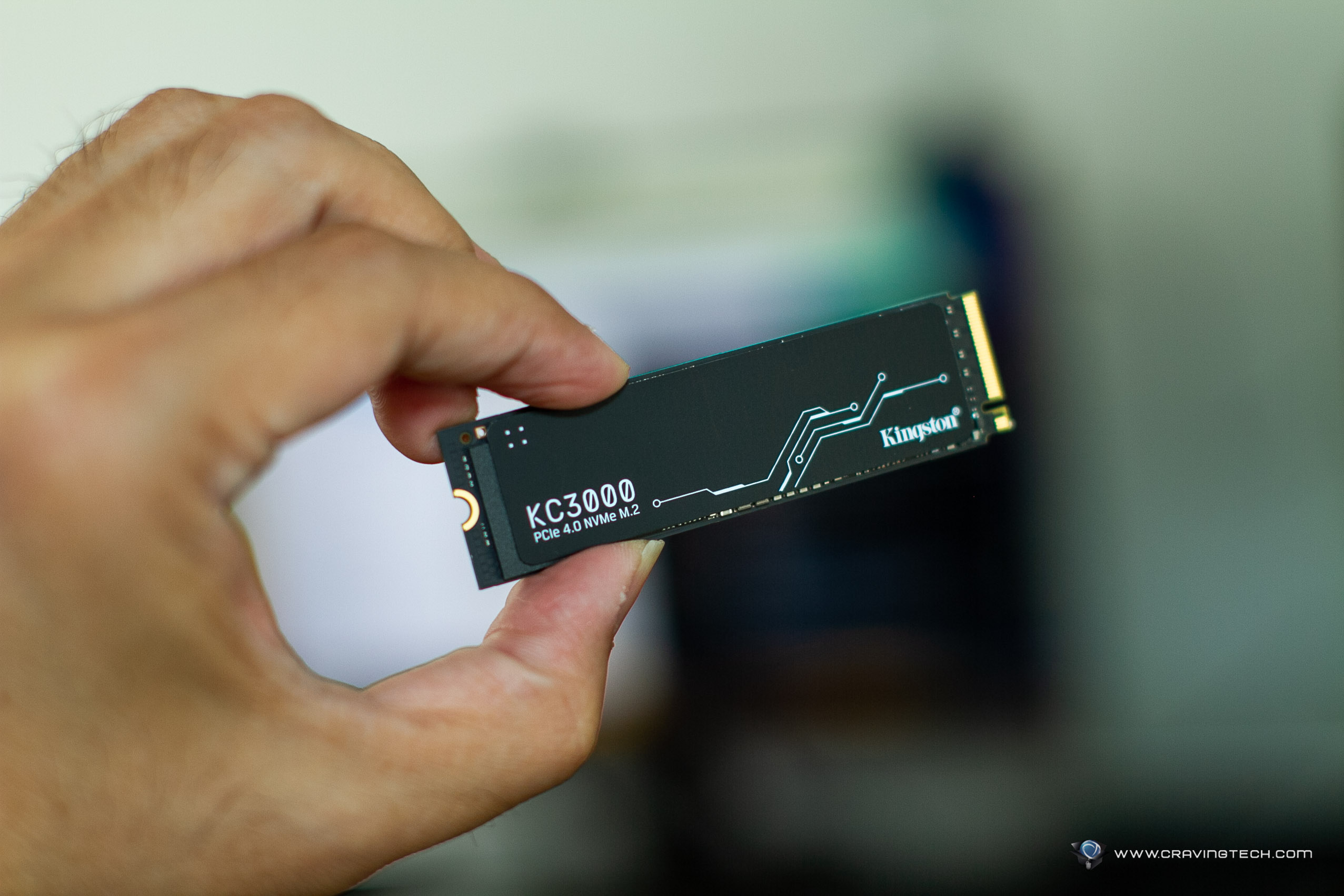
At first glance, the KC3000 looks just like an ordinary NVMe M.2 SSD and it comes with low profile graphene aluminium heat spreader. This means that if your M.2 storage slot motherboard is located below your graphics card, the KC3000 will fit just fine there (or any other squishier place).
You can also use it as a nice replacement and upgrade for your laptop storage, thanks to the compact form factor.
An Acronis True Image HD cloning software licence key is included within the packaging and I tested it to migrate my Windows 10 operating system from my older WD Black SN750 (3,400/2,800MB/s) to Kingston KC3000 (7,000/7,000MB/s).
It only required a few steps to migrate the whole thing to the KC3000 and only took me around 5-10 minutes (which was surprising!). So if you are still using an older SATA SSD or worse, a HDD, you will find that the migrating process is super simple here: just select the source and target drives – that’s pretty much it. We should also thank Kingston to give an Acronis cloning software key away with the purchase.
So how about its speed and performance?
Kingston claims that the drive can reach 7,000MB/s read and 7,000MB/s write speed on the 2TB capacity. I tested using CrystalDiskMark benchmarking software to see if we can reach that peak rates.
Overall, the performance results seem to be inconsistent in the system I test it on and the read/write speed can be largely varied from one test to the next. At some point, it could reach 7,333MB/s read speed which is truly amazing but sometimes I could get around 3,000MB/s read/write speed:
I’m assuming this happens because of the thermal throttling while the drive is being stress-tested/benchmarked. The heat spreader definitely works but it’s not a real heatsink. In real life, the drive should be running fine as it wouldn’t be running at its peak for a longer period of time (more like in short bursts such as when you are loading a big map in a game). When benchmarked using smaller tests, the performance looks to be more consistent at around 6,300MB/s read and 6,100MB/s write speed in my system:
Also note that the hardware components and the system it’s running on can also affect the benchmarking and test results (and benchmarking isn’t normally the same as real life usage anyway).
Here are the specs of the system it’s running on:
- Processor: AMD Ryzen 7 3800X
- Motherboard: GIGABYTE X570 AORUS ELITE Wi-Fi
- RAM: CORSAIR 32GB DOMINATOR DDR4 RAM
- Cooler: CORSAIR iCUE H115i ELITE CAPELLIX (Liquid CPU Cooler, 280mm Radiator)
- PSU: CORSAIR RM750i PSU (750 Watt 80 PLUS Gold Certified Fully Modular PSU)
- Graphics Card: GIGABYTE GeForce RTX 3080 Gaming OC 10GB
Kingston KC3000 NVMe SSD Review Conclusion
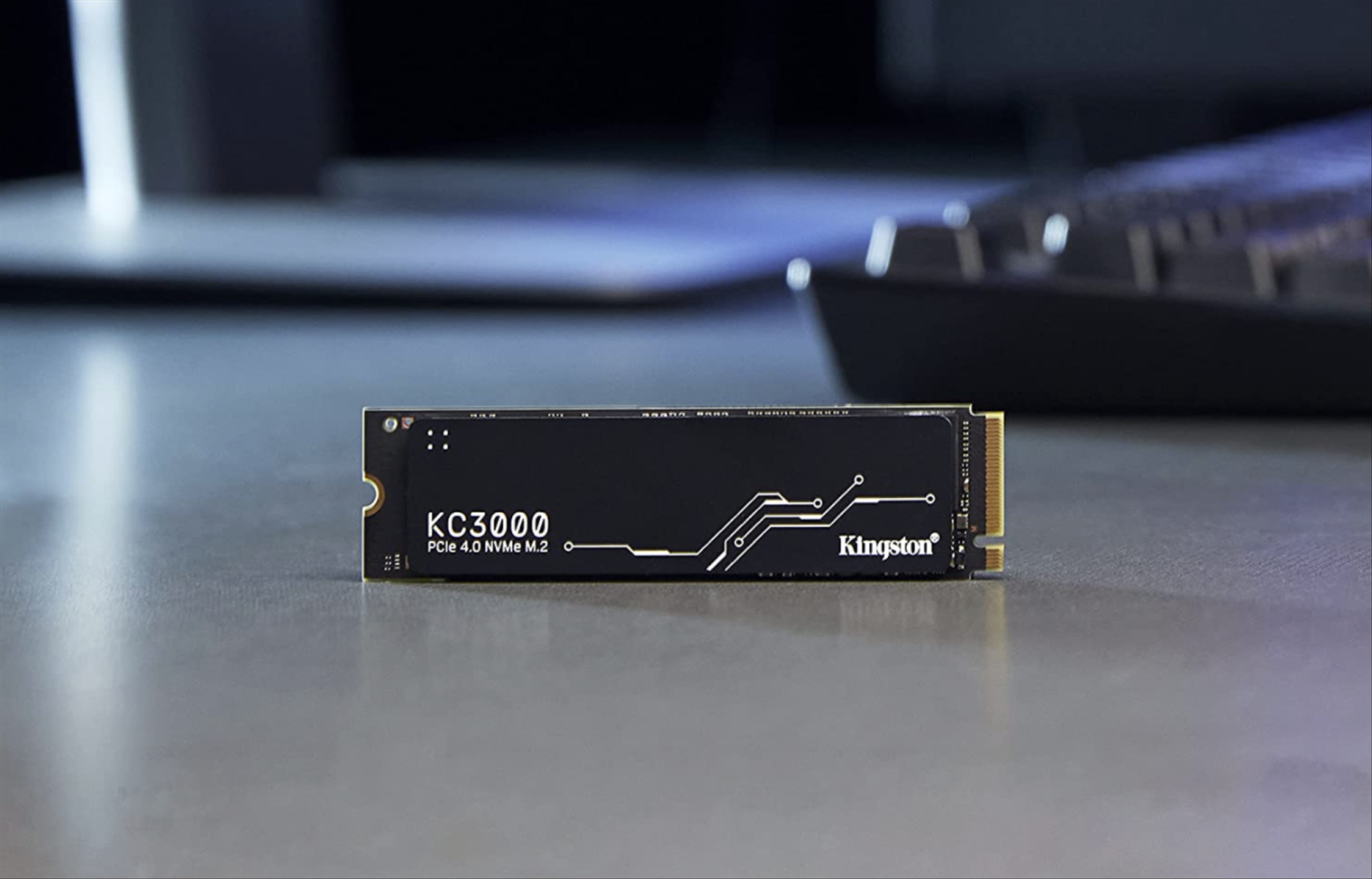
In real life, the performance of the drive is top notch and lightning fast. Booting up Windows is really quick and almost instantaneous. When using it as a game drive, games with long loading times were cut short too. In Overwatch (that I play almost every night with friends), I can normally get into the Hero selection screen faster than my teammates (I know this because I already know what my hero role is before the others).
The included Acronis cloning software licence key also makes it super-easy if you are planning to migrate your operating system drive to this one. There is no reformatting or Windows reinstallation necessary and you’ll be up and running the exact same thing, but in a much faster drive.
As game drives, the KC3000 NVMe SSD also performs really well and will cut a lot of loading times short, especially if you are still running a SATA SSD like the Kingston KC600, for example.
Kingston KC3000 also has a 5-year limited warranty and comes in variety of capacities. The one I have here (2TB) retails for around A$599 at the moment in Australia. You can also grab it at Amazon.com.
Kingston KC3000 NVMe SSD review sample was supplied for reviewing

